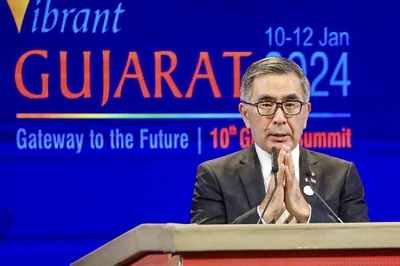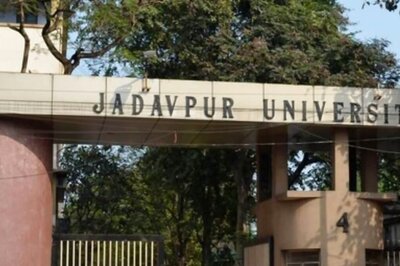
views
New Delhi: Has Pakistan’s espionage agency, the Inter Services Intelligence (ISI), infiltrated the Indian armed forces? The arrest last week of two Armymen, allegedly ISI moles, has led to this fear once again.
Addressing a press conference on Monday, Defence Minister Pranab Mukherjee admitted that the ISI had increased its activities in India and the armed forces need to be on alert.
How deeply has the ISI infiltrated the forces and what should be done to thwart its activities? CNN-IBN asked these questions to former Indian Army Chief, Gen Shankar Roy Choudhary, and national security expert V Raman. Former Pakistan ISI chief, Hamid Gul, was also took part in the discussion.
The ISI Mark
Gen Roy Choudhary said, though the ISI activity has not been "going on" for long, the frequency with which "traitors" were being caught was worrisome.
"Our counter-intelligence has to be further strengthened for these moles to be eliminated"
— Former Army chief General Shankar Roy Chaudhary
"Our counter-intelligence has to be further strengthened for these moles to be eliminated," he said.
Raman said, though each government department kept tabs on external contacts, "this kind of infiltrations showed gaps in the internal security set-up".
"These kind of infiltrations show gaps in the internal security set-up"
— National security expert V Raman
"These gaps have to be assessed and checked. If a person went to Kathmandu three times, how come his trips did not come to notice?" Raman said, referring to Army jawan Ritesh Kumar who was arrested on October 22.
Former ISI Chief Hamid Gul admitted ISI's infiltration strategy was as "old as Pakistan" itself. "We have had an adverse relation with India. It is a method to protect ourselves and getting the information in advance," said Gul.
"We have an adverse relation with India it is a method to protect ourselves and get information in advance"
— Former ISI chief Hamid Gul
Asked if ISI's espionage activities could lead to derailment of the peace process between the two countries, Gul said, "No, not at all."
"It goes on all the time. The Soviet Union and the US continued to advance their interest through means other than confrontation. Intelligence agencies have to do certain things and this is offensive intelligence," he added.
Business as Usual
"There will be ups and downs and it depends on the relationship between the countries at that time. With the bone of discord over Kashmir, this adverse relationship will remain," he said, making it clear that the ISI will continue to spy.
What can India do? Gen Chaudhary’s suggestion was clear: "We have to further strengthen our counter-intelligence."
Soft Target
There is another dangerous element in ISI's strategy: targeting religious minorities and polarising the armed forces along communal lines. Gen Chaudhary was sure that ISI would never succeed in this.
"Communal polarisation will not take place because our troops have been totally faithful and true to their salt apart from exceptions. I agree with Gul that diplomats can keep talking, but the basic relationship will remain adversarial in the foreseeable future," he said.
Raman said people would never ever doubt Muslim officers in the armed forces. "We should not exaggerate the possibilities on communal polarisation. We have to be alert about any negative tendencies. There has always been communal harmony in our forces," he said.
"There has always been an attempt to infiltrate the armed forces. The recent instances just show that there are holes that are exploited by ISI. We need to locate the loopholes and deal with them," Gen Chaudhary said.




















Comments
0 comment